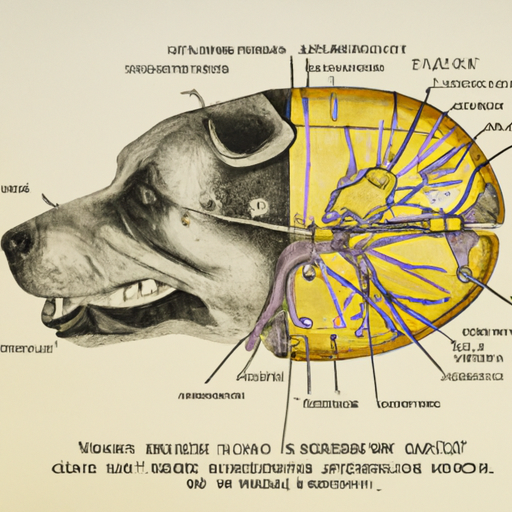Understanding the Size and Structure of a Dog’s Brain
The size of a dog’s brain is highly dependent on the type of breed. As a caregiver, you should understand that the size of the brain doesn’t necessarily determine the intelligence of your dog. The structure and number of neurons in the brain are what truly matter. For example, a Retriever’s brain might be larger than a Poodle’s, but that doesn’t necessarily mean it’s smarter.
Factors Influencing Brain Size in Dogs
Several factors influence the size of a dog’s brain. These include:
- Breed: Different breeds have different brain sizes. For instance, a Saint Bernard’s brain is larger than a Chihuahua’s.
- Size: Larger dogs tend to have larger brains. However, this isn’t always the case, as small dogs can sometimes have proportionally larger brains.
- Age: Puppies have smaller brains which grow as they develop into adults.
Comparing the Brain Size of Dogs to Other Animals
It may be interesting for you to compare your dog’s brain size to other animals. Here’s a simple table to help you understand:
| Animal | Average Brain Weight |
|---|---|
| Human | 1300-1400 grams |
| Elephant | 5000 grams |
| Dog | 72 grams |
| Cat | 30 grams |
Please note that these are average measurements and can vary widely between individuals.
How Brain Size Affects a Dog’s Behavior
While the dog’s brain size doesn’t directly correlate with intelligence, it does influence certain behaviors. For instance, larger dogs with larger brains tend to have a better memory and problem-solving skills. Dogs with smaller brains, however, are often quicker learners. They are more reactive and adaptable to new situations.
Caring for Your Dog’s Brain Health
As a caregiver, taking care of your dog’s brain health should be a priority. Here are some tips:
- Regular mental stimulation: Engage your dog in puzzle games, training exercises, and regular play to keep their mind sharp.
- Proper nutrition: Certain nutrients can promote brain health. Look for dog food that contains antioxidants, Omega-3 fatty acids, and B-vitamins.
- Regular vet check-ups: Regular check-ups can help detect any potential brain health issues early.
FAQ
Q: Does the size of a dog’s brain affect its intelligence?
A: Not necessarily. While larger brains can handle more information, intelligence in dogs is more about the number of neurons and brain structure.
Q: How can I improve my dog’s brain health?
A: Regular mental stimulation, proper nutrition, and regular vet check-ups can help maintain and improve your dog’s brain health.
Q: Does a dog’s brain grow as they age?
A: Yes, a puppy’s brain grows as they mature into adulthood. However, the growth slows down significantly once they reach adulthood.



